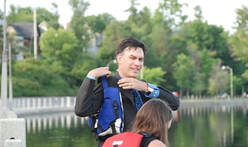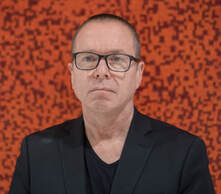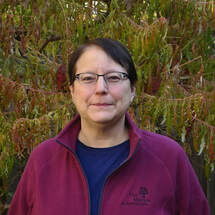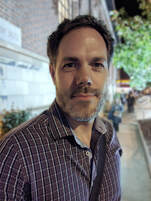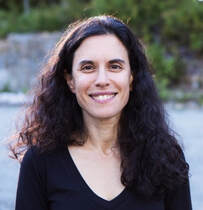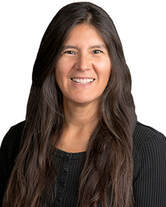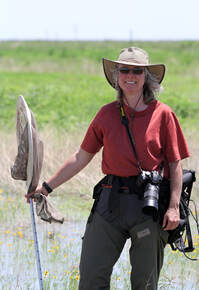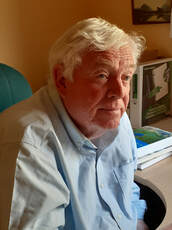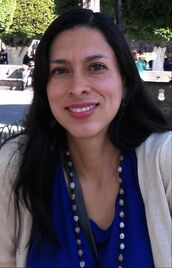2020 ARCHIVES: Plenary Presenters
|
Glenn Benoy {Plenary 2 Speaker}
National Manager of Habitat and Arctic Science, Fisheries and Oceans Canada Dr. Glenn Benoy recently served as the Senior Water Quality and Ecosystem Advisor to the Canadian Section of the International Joint Commission (IJC) and is also a Fellow with the Canadian Rivers Institute (CRI). He advised both the IJC and the CRI on the science and management of shared waters – lakes and rivers and their watersheds – between Canada and the United States. Prior, he was an Environment & Climate Change Canada and Agriculture & Agri-Foods Canada research scientist in aquatic landscape ecology. He holds a PhD from the University of Guelph and he was a postdoc at the University of Calgary and the National Hydrology Research Centre in Saskatoon. He is now the National Manager of Habitat and Arctic Science at Fisheries and Oceans Canada. |
|
John Croutch {Plenary 1 Moderator}
Office of Indigenous Initiatives, University of Toronto John Croutch is a status First Nations person of mixed heritage. An Anishinaabe member of Wikwemikoong First Nations on his mother’s side and of German Canadian heritage on his father’s side. John currently works as an Indigenous Cultural Competency Trainer with the Office of Indigenous Initiatives at the University of Toronto. John has spent the better part of the last 30 years working to improve the relationship between Indigenous and non-Indigenous peoples through education. |
|
Marie-Josée Fortin {Plenary 3 Moderator}
Professor in Spatial Ecology, University of Toronto Marie-Josée received her B.Sc and M.Sc. in Biology from the University of Montréal. She then did her Ph.D. in Ecology & Evolution at SUNY Stony Brook under the supervision of Dr. Robert Sokal., USA). And she did a postdoct in paleoecology at the Université Laval. She is recognized internationally for my research in spatial ecology and conservation. Her research focuses on developing spatially-explicitly models the effects of global changes (climate and land-use changes) on species spatial distribution. Hence, her research endeavors are at the interface of several disciplines (spatial ecology, conservation, network theory, forest ecology, disturbance ecology, community ecology, landscape genetics, spatial epidemiology, geography, spatial statistics, spatially-explicit modeling) where the most current ecological challenging problems lie. She made numerous contributions in the fields of landscape/spatial/quantitative ecology. She authored an acclaimed book (first and second edition) on spatial analysis in ecology (Fortin & Dale 2005, Dale & Fortin 2014) and co-authored a textbook on spatial ecology and conservation (Fletcher & Fortin 2019). In 2013, she was awarded the Distinguished Landscape Ecologist Award from the US-IALE and in 2014, the Outstanding Scientific Achievements Award from the International Association for Landscape Ecology (IALE). |
|
Jon Johnson {Plenary 1 Speaker}
Assistant Professor, Teaching Stream, University of Toronto Dr. Jon Johnson is an Assistant Professor (Teaching Stream) at the University of Toronto. His research is focused on urban land-based Indigenous Knowledges in Toronto and their representation through oral and digital forms of storytelling. He works actively within Toronto’s Indigenous community in his capacity as a lead organizer for First Story Toronto, an Indigenous-led community-based organization that researches and shares Toronto’s Indigenous presence through popular education initiatives such as storytelling tours of the city and its freely-available smartphone application. He is currently engaged in a variety of projects to create mutually respectful and beneficial collaborations between Indigenous communities and the university. |
|
Jessica Levine {Plenary 2 Speaker}
Senior Conservation Advisor, Nature United Jessie Levine coordinates the Staying Connected Initiative, a public-private landscape connectivity conservation partnership in the Northern Appalachian region of Canada and the U.S. She works for Nature United, the Canadian affiliate of The Nature Conservancy. Jessie serves on the executive committee of the Network for Landscape Conservation and as Eastern North America lead for the IUCN’s Connectivity Conservation Specialist Group. Previous work experience includes managing collaborative environmental initiatives across North America, coordinating biodiversity research across Quebec, leading youth environmental education, and directing volunteer programs in Latin America. Jessie holds an MSc in Energy and Resources and an MCP in City and Regional Planning from the University of California, Berkeley, and a Bachelors degree in Human Biology from Stanford University. |
|
Deb McGregor {Plenary 1 Speaker}
Associate Professor & Canada Research Chair in Indigenous Environmental Justice, Osgoode Hall Law School of York University Professor Deborah McGregor joined York University’s Osgoode Hall law faculty in 2015 as a cross-appointee with the Faculty of Environmental Studies.Professor McGregor’s research has focused on Indigenous knowledge systems and their various applications in diverse contexts including water and environmental and water governance, environmental justice, health and environment, and climate justice. |
|
Nancy McIntyre {Plenary 3 Speaker}
Professor & Associate Department Chair, Landscape & Community Ecology, Texas Tech University, USA Originally from South Carolina, Nancy earned her B.S. and M.S. degrees in zoology at the University of Georgia; her M.S. thesis on the effects of forest fragmentation on bird communities was directed by Frank Golley. She then received her Ph.D. in ecology at Colorado State University under the direction of John Wiens, with whom she developed experimental model systems to test landscape ecological theory. She was a postdoctoral research associate in urban ecology with the Central Arizona-Phoenix Long-term Ecological Research project at Arizona State University before joining the faculty of the Department of Biological Sciences at Texas Tech University in 2000, where she is now a Professor and Associate Department Chairperson and Curator of Birds. She teaches undergraduate and graduate courses in landscape ecology, community ecology, and ornithology. She and her students use diversified methods and work on a variety of focal systems and organisms, but their assorted projects are all united by a common theme: addressing how land use/land cover change affects the distribution of animals in a heterogeneous and dynamic world. She has been a member of IALE for over 25 years and is President-elect of IALE-North America. |
|
Michael Moss {Plenary 3 Speaker}
Professor and Associate Dean of Environmental Sciences, University of Guelph, Canada As a landscape ecologist Michael approaches the field from the more European, physical geography, landscape synthesis perspective; his research in this area has focused on landscape and biophysical processes, their classification and their applications in bioregional planning. Michael's academic career has been largely in Geography, primarily at the University of Guelph, where he was Chair for two terms before moving into the role as head of the newly-established, interdisciplinary Faculty of Environmental Sciences. Since “retiring” he has been heavily involved, at both the provincial and federal levels in Canada, in attempting to advance both the programming and the availability of programming from across the environmental spectrum at the post-secondary level, both for students and professionals in the field. Landscape ecology has, he believes, a significant contribution to make to many sectors of the environmental profession. Michael's involvement with landscape ecology began, formally, in 1984 as a Regional Counsellor on the Founding Committee for the Canadian Society for Landscape Ecology and Management (CSLEM). He was President of CSLEM from 1989 to 1991 during which time he organized the First (1988) and Second (1990) CSLEM National Meetings and edited the publications arising from these meetings. Also, from 1984 to 1986 Michael was Vice Chair of the Landscape Synthesis Working Group of the International Geographic Congress. From 1993 to 1997 he was Chair of the IALE Working Group on Landscape Synthesis and Management. From 1996 to 2004 he served for two terms as Secretary-General of IALE. During his time as Secretary-General of IALE, Michael was involved in two major publications. One of these, Issues and Perspectives in Landscape Ecology (edited with John Weins, Cambridge University Press, 2005) is an extended version growing out of papers given at the 1999 IALE International Congress in Colorado. The second book, Foundation Papers in Landscape Ecology (edited with John Wiens, Monica Turner and David Mladenoff, Columbia University Press, 2006) encompasses the many divergent bases and underlying structures of landscape ecology. |
|
Yessica Rico Mancebo del Castillo {Plenary 3 Speaker}
Investigadora Cátedra, CONACYT, Mexico Yessica has experience in population genetics, landscape genetics, ecology, and conservation biology. She is interested in understanding how landscape and environmental changes affect biological processes of dispersal, gene flow, and local adaptation. Yessica is originally from Mexico, where she studied Biology (Universidad Autónoma de Querétaro) and has a M.S. in Management of Natural Resources and Rural Development (El Colegio de la Frontera Sur); She received her PhD at the University of Toronto in Canada, where she studied local and landscape effects of a 20-year-old ecological network on calcareous grassland plants in Germany. Later she did two postdocs, one at Trent University and the second at the Royal Ontario Museum in Canada working on population and landscape genetics for mammals and tortoises. In 2015, Yessica moved to Mexico to fill a CONACYT research position at the Institute of Ecology A.C. (INECOL) to work mainly on population genetics and landscape genetics for vulnerable plant species from western Mexico (Magnoliaceae, Burseraceae, Lamiaceae). She teaches a graduate course on Landscape Ecology and Landscape Genetics and is an online instructor of the DGS international Landscape Genetics Course. Yessica has been member of the IALE since she was a PhD student back in 2009 and currently, she is part of the executive committee as Councilor-at Large (2019-2021). |

